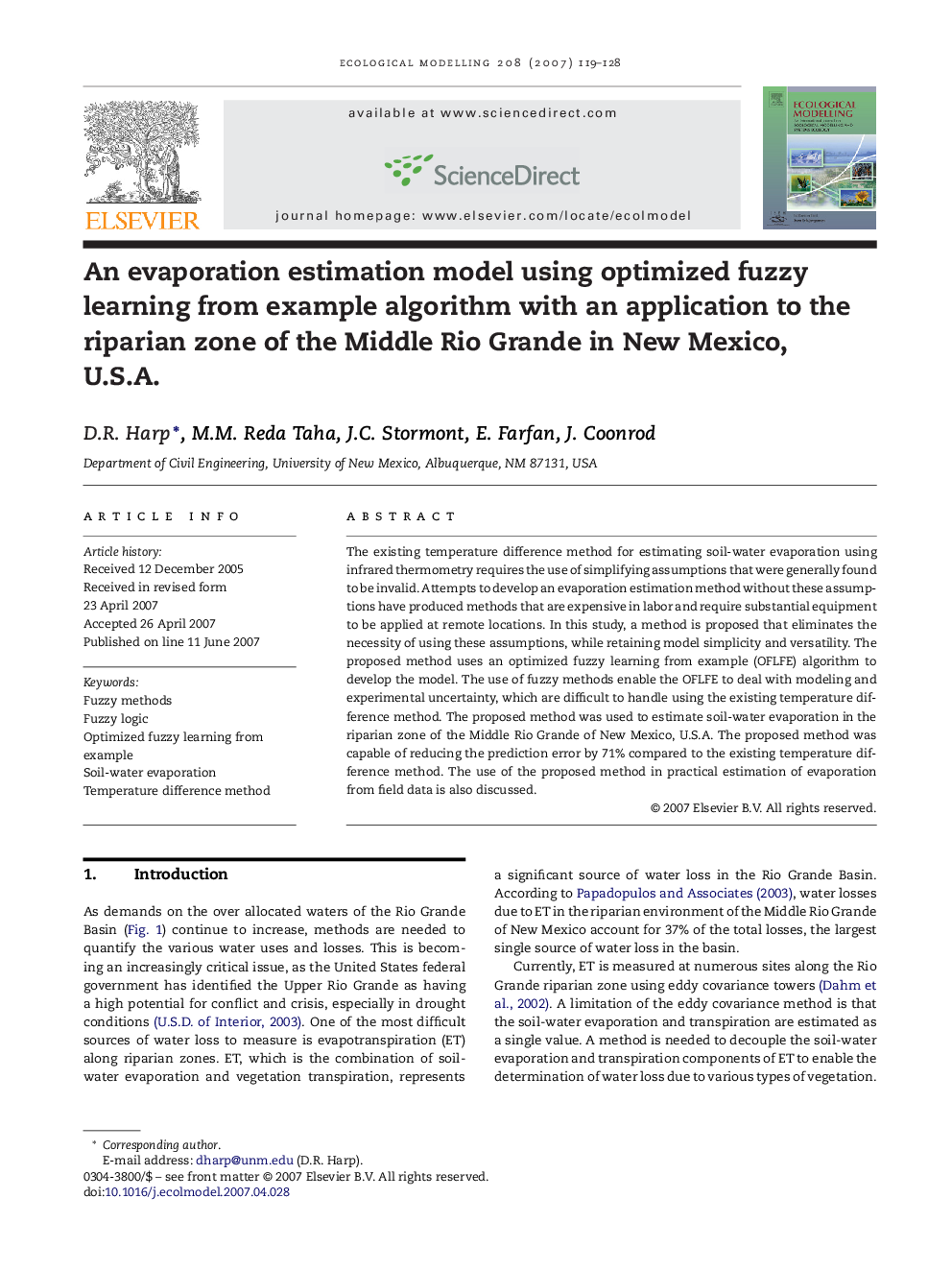| Article ID | Journal | Published Year | Pages | File Type |
|---|---|---|---|---|
| 4378402 | Ecological Modelling | 2007 | 10 Pages |
The existing temperature difference method for estimating soil-water evaporation using infrared thermometry requires the use of simplifying assumptions that were generally found to be invalid. Attempts to develop an evaporation estimation method without these assumptions have produced methods that are expensive in labor and require substantial equipment to be applied at remote locations. In this study, a method is proposed that eliminates the necessity of using these assumptions, while retaining model simplicity and versatility. The proposed method uses an optimized fuzzy learning from example (OFLFE) algorithm to develop the model. The use of fuzzy methods enable the OFLFE to deal with modeling and experimental uncertainty, which are difficult to handle using the existing temperature difference method. The proposed method was used to estimate soil-water evaporation in the riparian zone of the Middle Rio Grande of New Mexico, U.S.A. The proposed method was capable of reducing the prediction error by 71% compared to the existing temperature difference method. The use of the proposed method in practical estimation of evaporation from field data is also discussed.
